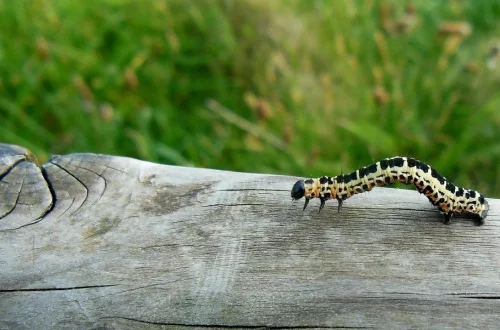
Can Guinea Pigs Safely Enjoy Blueberries in Their Diet?
Guinea pigs are charming little creatures that have won the hearts of pet lovers around the world. As small herbivores, their diet primarily consists of hay, fresh vegetables, and specially formulated pellets. However, many owners often wonder about the addition of fruits to their pets’ diets, particularly delicious options like blueberries. These tiny, nutrient-rich berries are popular among humans for their health benefits, but are they safe for guinea pigs?
Understanding the dietary needs of guinea pigs is crucial for any pet owner. These animals have unique digestive systems that require a careful balance of nutrients. While many fruits are safe for guinea pigs in moderation, it’s essential to know which ones can be included and how they can affect your pet’s health. Blueberries, in particular, are sometimes considered a potential treat, but there are several factors that owners should take into account.
In this article, we will explore the safety of feeding blueberries to guinea pigs, the nutritional aspects of these berries, and the best practices for introducing new foods into their diet. By the end, you will have a comprehensive understanding of whether or not blueberries can be a sweet addition to your guinea pig’s meals.
Nutritional Benefits of Blueberries
Blueberries are often hailed as a superfood for their high levels of antioxidants, vitamins, and minerals. For guinea pigs, these tiny fruits can provide various health benefits when offered in moderation.
First and foremost, blueberries are rich in vitamin C, an essential nutrient for guinea pigs. Unlike humans, guinea pigs cannot produce their own vitamin C, making it vital to include it in their diet. Vitamin C supports overall health, boosts the immune system, and helps prevent scurvy, a serious condition that can arise from vitamin deficiency. The presence of blueberries in a guinea pig’s diet can contribute to their daily vitamin C intake, promoting a healthier life.
Additionally, blueberries contain dietary fiber, which is crucial for maintaining a healthy digestive system. Fiber aids in digestion and helps prevent gastrointestinal issues, which guinea pigs can be prone to if their diet is not properly balanced. The fiber content in blueberries can support your pet’s digestive health, especially when combined with their primary food sources like hay and vegetables.
Moreover, blueberries have anti-inflammatory properties. This can be beneficial for guinea pigs, as it may help reduce inflammation in their bodies, potentially leading to a healthier and more active lifestyle. The antioxidants found in blueberries help combat oxidative stress, which can contribute to various health issues in guinea pigs as they age.
However, while blueberries offer several nutritional benefits, owners should remember that they should only be given as an occasional treat rather than a staple food. The high natural sugar content in blueberries can be problematic if fed in excess.
In summary, blueberries are a nutritious treat that can provide guinea pigs with important vitamins and minerals. They can enhance your pet’s diet when offered in moderation, supporting overall health and well-being.
Potential Risks of Feeding Blueberries
While blueberries can be a beneficial addition to a guinea pig’s diet, it’s crucial to recognize the potential risks associated with feeding them to your pet. Understanding these risks can help you make informed decisions about your guinea pig’s nutrition.
One of the primary concerns is the sugar content in blueberries. Although the sugars in fruits are natural, they can still lead to health issues if consumed in large amounts. Guinea pigs are susceptible to obesity and diabetes, and high sugar intake can exacerbate these conditions. Therefore, it is essential to limit the number of blueberries you offer and ensure they do not make up a significant portion of your guinea pig’s overall diet.
Another risk is the possibility of gastrointestinal upset. Introducing any new food to a guinea pig’s diet should be done cautiously. Their digestive systems are sensitive, and sudden changes or excessive quantities of new foods can lead to diarrhea or bloating. If you decide to feed your guinea pig blueberries, it’s best to start with a small amount and monitor them closely for any signs of digestive distress.
Additionally, owners must be vigilant about pesticide residues on fruits. Blueberries, like many other fruits, can be treated with pesticides during cultivation. It is crucial to wash the blueberries thoroughly before feeding them to your guinea pig to minimize the risk of chemical exposure. Alternatively, buying organic blueberries can help reduce this concern.
Lastly, some guinea pigs may have individual sensitivities or allergies to certain fruits, including blueberries. Observing your pet’s reaction to new foods is essential. If you notice any adverse effects after introducing blueberries, it’s best to discontinue feeding them and consult a veterinarian for further guidance.
In conclusion, while blueberries can provide several health benefits for guinea pigs, they also come with potential risks. Moderation, careful introduction, and attention to your pet’s individual needs are key factors to consider when incorporating blueberries into their diet.
How to Safely Introduce Blueberries to Your Guinea Pig
Introducing new foods, including blueberries, to your guinea pig’s diet should be approached with care and consideration. Here are some steps to ensure a safe and smooth transition when adding blueberries to your pet’s meals.
Start by selecting fresh, ripe blueberries. Look for fruits that are firm and free from any signs of mold or damage. Freshness is crucial, as spoiled fruits can lead to gastrointestinal issues for your guinea pig. If possible, choose organic blueberries to reduce the risk of pesticide exposure.
Before offering blueberries, rinse them thoroughly under running water. This cleaning step helps eliminate any dirt or potential pesticide residues. After washing, you can cut the blueberries in half to make them easier for your guinea pig to handle and consume. Smaller pieces can also help prevent your pet from choking.
When you first introduce blueberries, start with a small amount—about a quarter of a blueberry. Observe your guinea pig’s reaction after feeding them this small portion. Monitor for any signs of digestive upset or allergic reactions, such as diarrhea or changes in behavior. If your pet seems to enjoy the blueberries and shows no adverse effects, you can gradually increase the serving size over time.
Remember that blueberries should only be offered as an occasional treat, not as a regular part of their diet. A good rule of thumb is to limit blueberry treats to once or twice a week. This approach ensures that your guinea pig receives the nutritional benefits without excessive sugar intake.
It’s also important to maintain a balanced diet for your guinea pig. Ensure that the majority of their food consists of hay, fresh vegetables, and pellets specifically designed for guinea pigs. Treats like blueberries should complement their primary food sources rather than replace them.
In summary, safely introducing blueberries to your guinea pig involves careful selection, proper cleaning, and monitoring your pet’s response to this new treat. By following these guidelines, you can enhance your guinea pig’s diet with the occasional blueberry while ensuring their health and well-being.
In conclusion, while blueberries can be a delightful and nutritious treat for guinea pigs, pet owners must be mindful of the potential risks and the importance of moderation. Always prioritize a balanced diet, and consult with a veterinarian if you have any concerns about your guinea pig’s health or dietary needs.
**Disclaimer: This article is for informational purposes only and should not be considered medical advice. For any health concerns regarding your guinea pig, please consult a veterinarian.**




